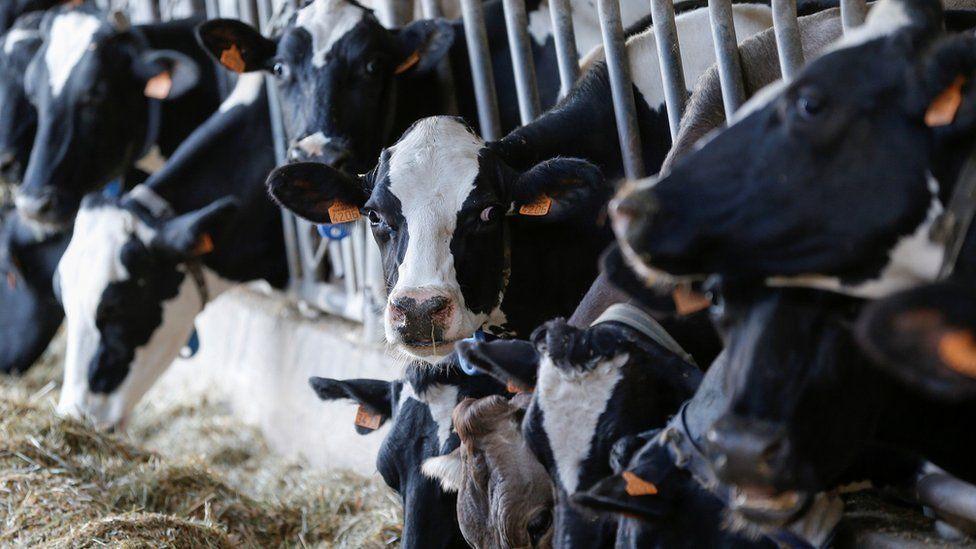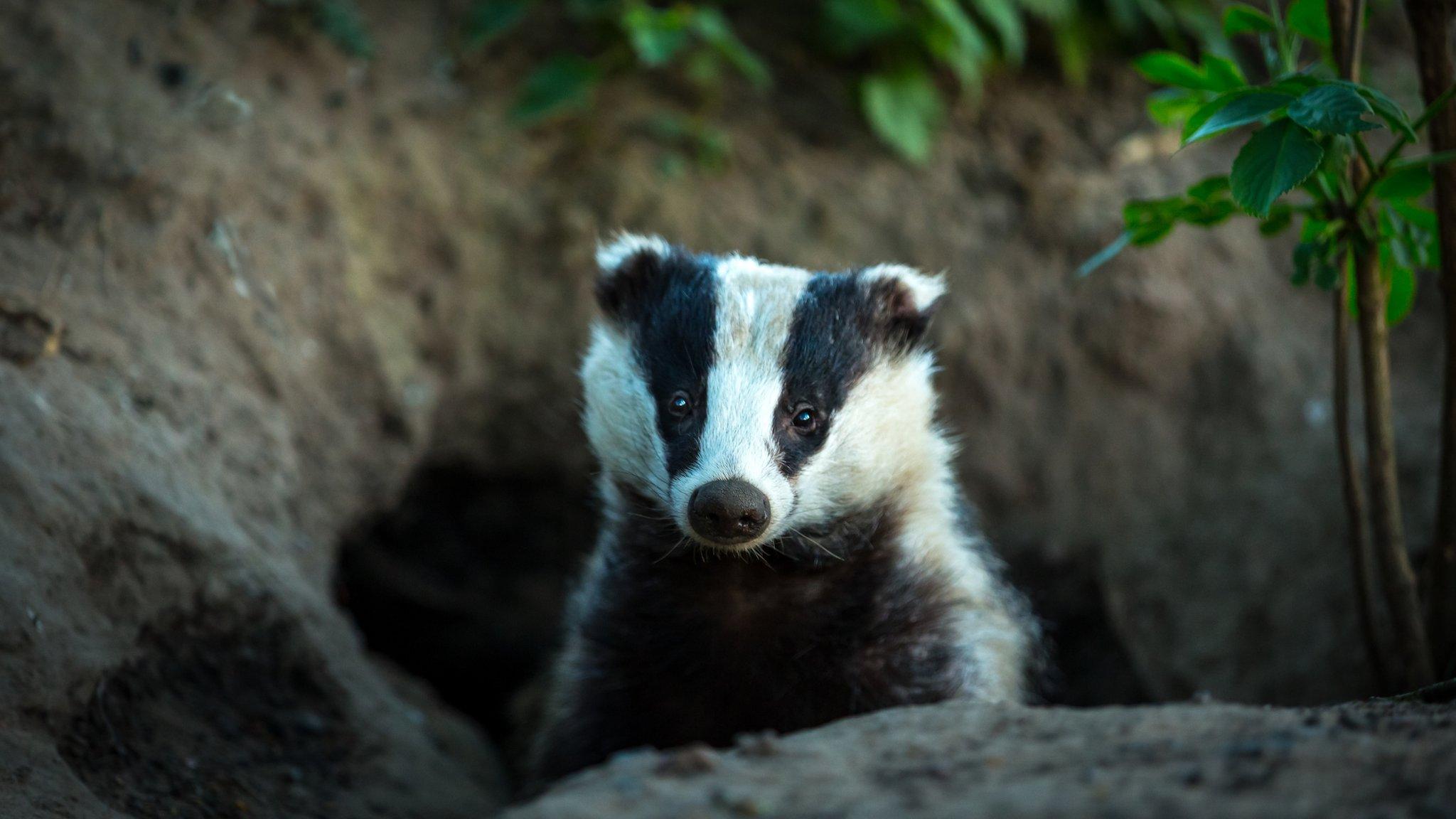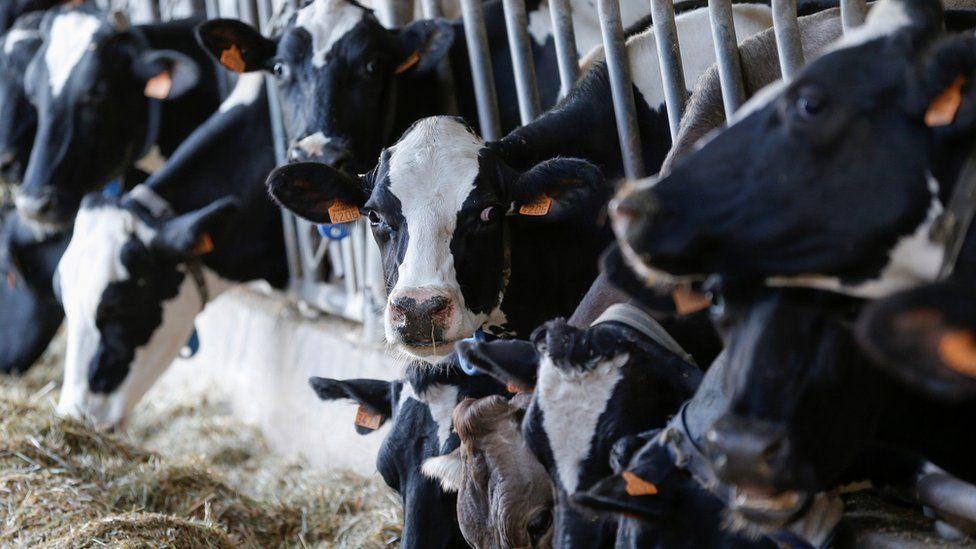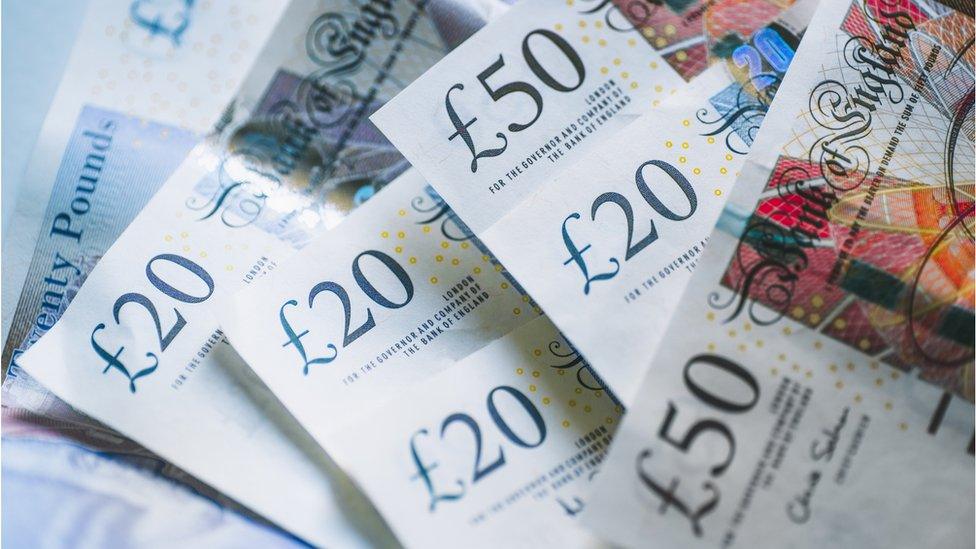Bovine TB: Cuts proposed to cattle compensation rates
- Published

Compensation made up £38m of the record £53m cost of the 2022/23 bTB programme
A consultation on reducing compensation rates for cattle with bovine tuberculosis (bTB) has begun.
It follows an instruction from the Northern Ireland secretary to the Department of Agriculture, Environment and Rural Affairs (Daera) in light of public expenditure pressures.
Farmers are currently compensated on a full market value basis for each animal.
Compensation made up £38m of the record £53m cost of the 2022/23 bTB programme.
Daera is seeking views on whether the payment should be reduced on a phased basis.
That would see the amount paid reduced to 90% in the first year of implementation and 75% a year later.
The consultation will run for eight weeks.
It consists of a single question: "Do you agree that public expenditure savings should be made by reducing the compensation rate for animals removed under the bTB programme?"
Rising costs
The cattle industry is worth £2.1bn a year to the Northern Ireland economy.
Overall disease rates have risen since 2020.
At the same time, increased market values mean the bTB programme has seen a significant rise in costs, particularly in compensation.
A bTB eradication strategy was announced by the former Daera minister Edwin Poots in March 2022.
It included a cull of badgers.
But that was quashed by the High Court on the basis of the consultation being flawed.
Daera says the costs of the bTB programme "cannot be sustained".
Revenue raising
This is the latest in a series of revenue-raising consultations ordered by Secretary of State Chris Heaton-Harris.
He says generating revenue is "not merely an option but a critical necessity" to improve the sustainability of Stormont's finances.
The government's proposed £3.3bn funding package for Northern Ireland, to be released if Stormont is restored, would require an excutive to raise more revenue, mostly likely through rates.
The consultation on rates, which are a property tax, would remove various exemptions and require the owners of the most valuable houses to pay more.
Last month a consultation began on options for household water charges.
Unlike other parts of the UK, households in Northern Ireland are not billed for water.
The water system in Northern Ireland is largely funded by government resources rather than consumer charges. The water company, NI Water, is government owned.
Direct water charging would be the single biggest revenue raiser but is politically controversial and is highly unlikely to be imposed by a devolved Executive.
Related topics
- Published24 March 2022

- Published27 July 2022

- Published19 December 2023
